Taylor K14CE-BE Grand Auditorium Koa Acoustic-Electric Guitar (#1209141197)
- Regular price
- $6,299.00
- Sale price
- $6,299.00
- Regular price
-
$6,449.00 - Unit price
- /per
Contact us if you are interested in this product.
808-591-0999 or admin@easymusiccenter.com
Adding product to your cart
- Description
- More
- Features
- Specs
- Inspection and Set-up
- Humidity Care
*Photos are of the actual guitar. Serial Number 1209141197.
This stunning Grand Auditorium from our new Builder's Edition collection features Hawaiian koa back and sides paired with a torrefied Sitka spruce top. The guitar was inspired by our groundbreaking V-Class bracing, which boosts the volume evenly across the tonal spectrum, increases the sustain, and improves the natural intonation of the guitar by creating a more orderly response from the soundboard. The result is a more harmonious relationship between the notes you play, helping chords sing with cohesive beauty.
Another design emphasis of Builder's Edition is enhanced playing comfort in the form of ergonomic new body contours. Details include a beveled armrest, beveled body edge treatment, and a reshaped cutaway that flows smoothly into the heel and incorporates a finger bevel where the cutaway meets the soundboard. This creates a more fluid path to the guitar's upper-register notes for your fretting hand. Other refined touches include “silent" satin finish, which helps quiet the incidental noise against the guitar body, and a gorgeous new Kona burst that highlights the natural beauty of the figured koa back and sides. Inset koa/paua top and back trim adds a beautiful sparkle that complements the new Spring Vine fretboard inlay. In every way, this K14ce acoustic guitar embodies the ultimate player's guitar and testifies to the benefits of innovative craftsmanship.
Grand Auditorium Shape
Taylor's signature shape embodies the ultimate all-purpose acoustic.
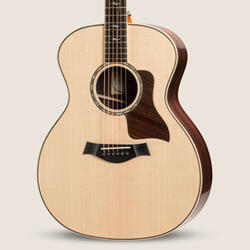
Sitka Spruce Top
The soundboard choice for most guitars, Sitka spruce produces a broad dynamic range and accommodates a versatile range of playing styles.

Hawaiian Koa Body
Few woods carry the allure of Hawaiian koa, with its gorgeous figure and sweet, complex tone.
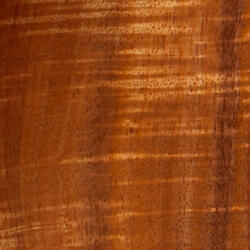
Expression System® 2 Electronics
The Expression System® 2 captures more of a guitar's dynamic properties using a breakthrough behind-the-saddle design.
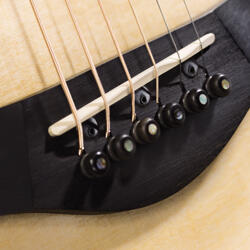
Beveled Cutaway
A smooth, double-contoured cutaway provides easy access to even the highest frets without changing hand positions.
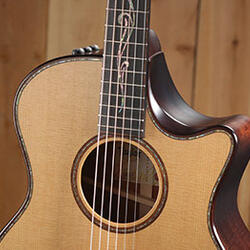
V-Class Bracing
A revolutionary design that balances the flexibility and stability of the top, V-Class bracing produces unmatched sustain, volume, and intonation.
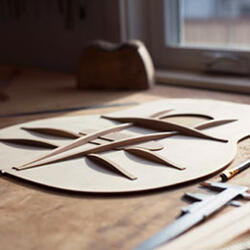
- Highlights
- Scale Length 25-1/2"
- Nut & Saddle Black Graphite, Micarta saddle
- Bracing V-Class
- Truss Rod Cover West African Crelicam Ebony
- Pickguard None
- Number of Frets 20
- Tuners Gotoh
- Case Taylor Deluxe Hardshell Brown
- Brand of Strings Elixir Phosphor Bronze Light
- Body Length 20"
- Body Width 16"
- Body Depth 4 5/8"
- Body
- Binding/Edge Treatment West African Crelicam Ebony
- Top Finish Silent Satin
- Back Config 2-piece or 4-piece Simons Wedge
- Backstrap Finish None
- Rosette Size Single Ring
- Bridge Inlay None
- Back/Side Finish Silent Satin
- Armrest Binding Beveled, inset Koa/Paua
- Backstrap Wood None
- Rosette Mat. Koa/Fiber/Paua
- Stain/Sunburst Kona Burst
- Wedge None
- Armrest yes
- Neck
- Neck Width 1-3/4"
- Fretboard Inlay Spring Vine
- Fretboard Binding/Edge Treatment West African Crelicam Ebony
- Heel Cap Binding West African Crelicam Ebony
- Type of Neck Joint Taylor Neck
- Neck/Heel Tropical Mahogany
- Fretboard Wood West African Crelicam Ebony
- Neck Finish Satin
- Heel Length 3-1/4"
- Peghead
- Peghead Finish Satin
- Peghead Binding West African Crelicam Ebony
- Peghead Type Standard
- Peghead Purfling Koa
- Headstock Overlay West African Crelicam Ebony
- Peghead Inlay Spring Vine
- Peghead Logo Taylor Mother of Pearl
- Other
- Bridge Pins West African Crelicam Ebony
- Buttons Gold
- Fingerboard Ext None
- Edge Trim Koa/Paua/Koa
At Easy Music Center, we care for our instruments from the moment they arrive to when they ship to your door. All instruments are stored in a climate controlled environment and put through a 12-point inspection checklist before being shipped.
First, we check the finish of the instrument, carefully inspecting any blemishes on the surface. Next, we check the playability and setup by inspecting and adjusting the truss rod (if available), bridge, nut, and frets to manufacturer factory specifications. Any request made outside of manufacturer factory specifications can incur additional charges for parts and labor. If the instrument has electronics, we test all of the electronic components to make sure they are functioning properly.
After a thorough inspection, we then move on to maintenance. We start by lubricating any moving parts on the instrument, such as tuning machines. We then move on to cleaning and oiling the fretboard along with the frets.
Once maintenance is done, we stretch and tune the strings and play test the instrument. After this, we do a final inspection and clean/detail the instrument before packing it up for shipment.
We’re excited to be a part of your instrument buying experience.
Acoustic guitars and ukulele are made of wood, and wood is sensitive to changes in climate. Shifts in temperature or relative humidity can affect your instrument in multiple ways, some of which can lead to costly repairs if you’re not careful. Solid woods in particular are especially prone to the effects of climate fluctuation. For example, extended exposure to low relative humidity (below 40% RH) can dry out the wood, causing it to shrink and run the risk of cracking. Similarly, excessive humidity can cause the wood to absorb moisture and swell, potentially causing other problems. Without adequate humidity control (especially in drier local climates), acoustic instruments can crack and their necks can warp, causing problems with fretting, intonation and playability.
So how do you prevent this kind of damage? Easy: by keeping your guitars and ukulele properly humidified (ideally between 40-60% RH). The easiest way to do this is by storing your instruments in a case with a case two-way humidifier inside. A two-way humidifier will slowly absorb or release moisture inside your case, maintaining humidity to help ensure your instrument doesn’t suffer damage. Using a digital hygrometer can help you monitor humidity levels around your instrument.
Symptoms of a dry acoustic instrument:
- Low action. Strings are very close to the fretboard.
- Hump on the fretboard where the neck joins the body.
- Sunken top across the soundboard between bridge and fingerboard.
- The back of instrument looks very flat when it is dried out.
- Sharp fret ends extend beyond the edge of the fretboard.
- The plane of the neck angle on a dry instrument hits above the top of the bridge.
Symptoms of a wet acoustic instrument:
- High action. Strings that are unusually high off the fretboard, making it difficult to play.
- Unusually swollen top
- Unusual warp on the top, back or both at the end-block
- Improper neck angle. Sighting the neck to the bridge, the frets will appear to hit below the bridge.
The D’Addario Two-Way Humidification System
Using patented technology, the D’Addario Two-Way Humidification System features disposable, moisture-filled packets with a breathable membrane that provides two-way humidity control, meaning it can either release or absorb moisture to consistently maintain a predetermined relative humidity (RH) level of 45-50 percent.
Music Nomad Humilele Ukulele Humidifier
Music Nomad the leader in equipment care products, has developed an easy to use, no mess, and low maintenance Ukulele humidifier. The Humilele rests securely on top of the strings to safely and evenly hydrate your Ukulele to avoid these problems.
Final Notes on Humidity Control
To monitor the amount of humidity your instrument is receiving, we recommend the purchase of a digital hygrometer, a device that gauges and provides a read-out of humidity levels. It can be kept in the room where you store your instruments, or, better yet, in a central location inside the instrument case, preferably Velcro’d to the outside of the accessories compartment (facing the heel). The optimal range for your guitars and ukulele is 45-55% RH.
























